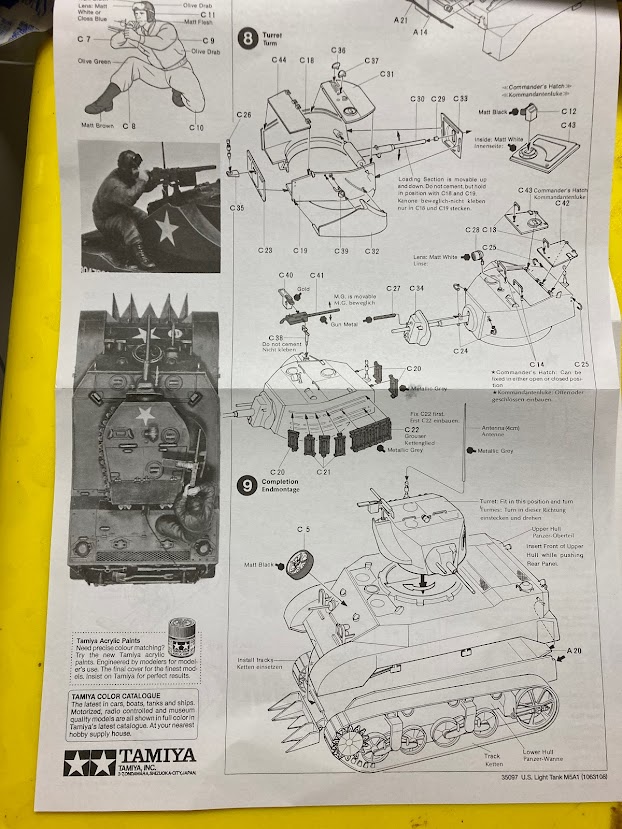A little beast at large in the wild.
The M3 Stuart/Light Tank M3, was an American light tank of World War II.
But I'm not building one...
To relieve wartime demand for the radial aero-engines used in the M3, a new version was developed using twin Cadillac V8 automobile engines. This improved version of the tank entered service as the M5 in 1942 to be supplied to British and other Commonwealth forces under lend-lease prior to the entry of the U.S. into the war. Afterwards, it was used by U.S. and Allied forces until the end of the war.
I'm building this one...

Let's take one home with us.
Nice box art on the front focusing on the tank. But useful when finishing the models. I'm going to use the mortar team in a different project. We'll see them again later.
The usual Tamiya end panels. Everything you need to know when you are perusing the shelves.
The usual grey camo on the underside.
Let's take a peek inside.
Tamiya kits always fill the box.
The British service name "Stuart" came from the American Civil War Confederate general J. E. B. Stuart and was used for both the M3 and the derivative M5 Light Tank. Unofficially, they were also often called "Honeys" by the British, because of their smooth ride. In U.S. use, the tanks were officially known as "Light Tank M3" and "Light Tank M5".
Looking forward to this...
Rubber band tracks. I really don't mind them. I ain't no pro modeler so...
Clean crisp molding. No complaints there.
The hull...
The turret...
The wheels...
Hull accessories...
Let's put it together...
The mortar team. Later boys.
Stuarts were first used in combat in the North African campaign; about 170 were used by the British forces in Operation Crusader (18 November – 30 December 1941). Stuarts were the first American-crewed tanks in World War II to engage the enemy in tank versus tank combat when used in the Philippines in December 1941 against the Japanese. Outside of the Pacific War, in later years of WWII the M3 was used for reconnaissance and screening.
Checking out the instructions.
Standard Tamiya fare...

































Comments
Post a Comment